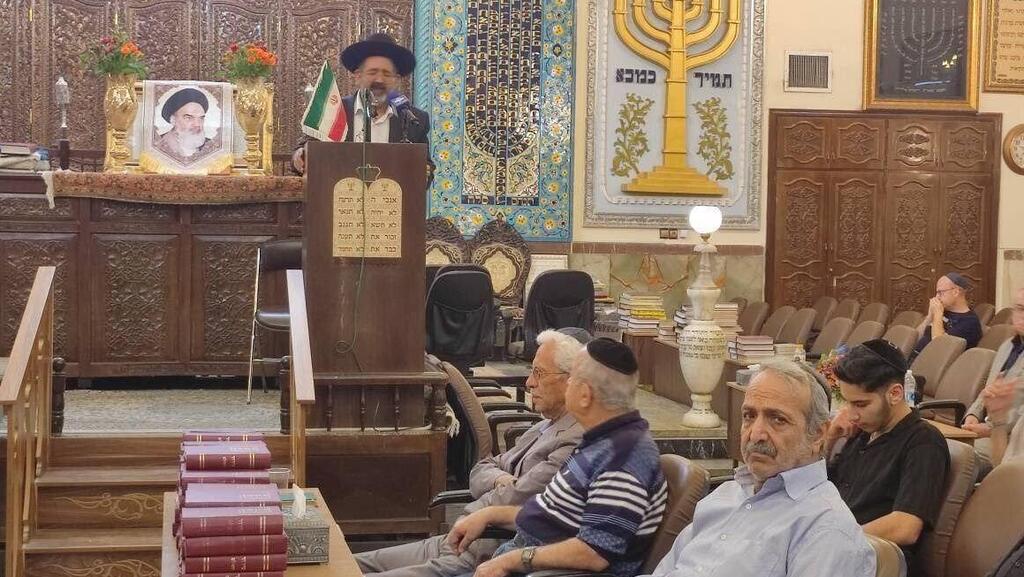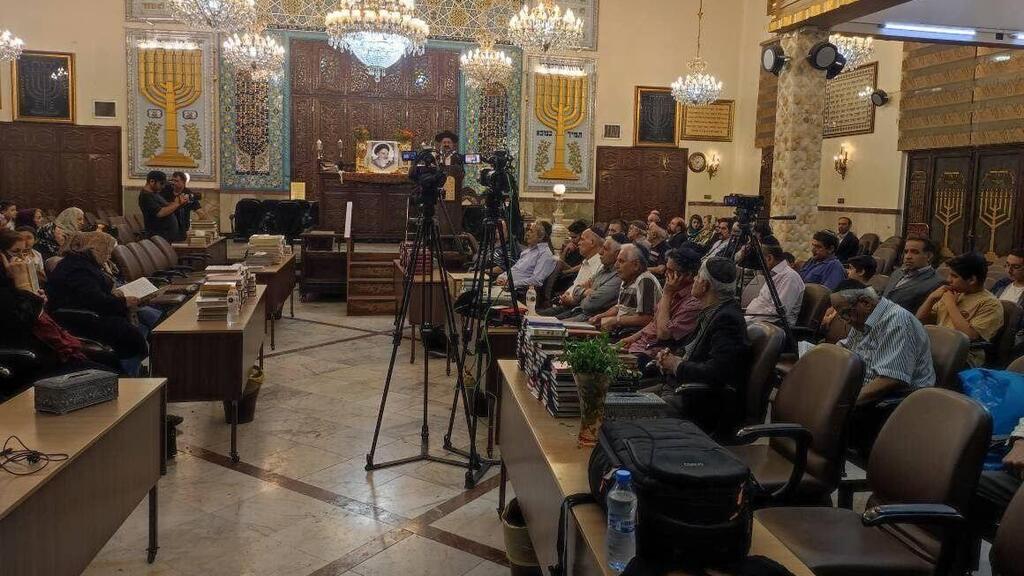Iran’s Jewish community marked the 36th anniversary of Ayatollah Ruhollah Khomeini’s death with a memorial service that included Torah readings and Psalms, as well as speeches in his honor at the Youssef Abad Synagogue in Tehran.
Among the speakers was Rabbi Younes Hamami, a prominent figure in the community, who praised Khomeini’s character and his stance toward Judaism. “Imam Khomeini—may Allah have mercy on him—was a major religious figure across faiths,”
Hamami said. “The Islamic Revolution carried the banner of resistance against oppression and unified the people in their struggle against tyrants.”
Dr. Homayoun Sameyah, the Jewish community’s representative in the Iranian parliament, also praised Khomeini, saying, “After the Islamic Revolution’s victory, the Jewish community in Iran was granted greater respect and, like other religious groups, could worship freely. To this day, the Jewish community has faced no problems.”
Get the Ynetnews app on your smartphone: Google Play: https://bit.ly/4eJ37pE | Apple App Store: https://bit.ly/3ZL7iNv
Mohammad Reza Movahedi Kermani, head the Khomeini Memorial Center’s religious affairs committee, highlighted the role of non-Muslim communities in Iran and attributed Khomeini’s enduring legacy to his unique outlook on religion. “What has kept Imam Khomeini’s memory alive is the nature of his movement and his distinctive view of religious diversity,” he said.
Khomeini led the 1979 Islamic Revolution, which transformed Iran into a theocratic state and purged Western influence. He called for the elimination of domestic opposition, leading to thousands of executions and expressed deep hostility toward the West—especially the U.S.—while aiming to export the Islamic revolution across the Muslim world through propaganda, violence and terror.
In November 1979, Khomeini’s supporters seized the U.S. Embassy in Tehran and took dozens of American civilians hostage. The following year, Iran entered a brutal eight-year war with Iraq, resulting in roughly 1 million Iranian deaths.
Khomeini died on June 3, 1989. His rule left Iran economically, socially, and politically crippled. Women lost many of their rights, were forced to wear traditional clothing, and were confined to their homes. The government was placed entirely under the control of religious clerics loyal to Khomeini.




